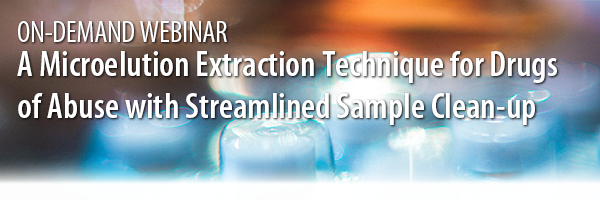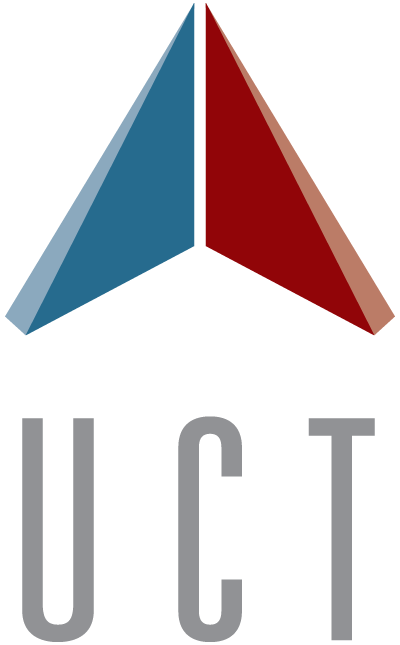This on-demand webinar outlines methods for extracting a large drugs of abuse panel from urine and plasma using reverse-phase and mixed-mode sorbent chemistries. For further details and to register, click below.


Format: On-demand
Duration: Approximately 30 minutes
Analytical toxicology involves methods for comprehensive screening of biological matrices for the presence of abused drugs. Routine analysis of samples in clinical and forensic settings demands quick and efficient extraction procedures. Solid-phase extraction (SPE) products with smaller sorbent amounts allow for scaling-down of starting sample size and also minimize the total solvent volumes required to wash matrix components and elute the target analytes.
This presentation outlines methods for extracting a large drugs of abuse panel from urine and plasma using reverse-phase and mixed-mode sorbent chemistries in a microelution format. HPLC separation was carried out using UCT’s Selectra® PFPP column prior to the analysis on LC‐MS/MS.
By viewing this presentation you will:
- Achieve a fundamental overview of the microelution extraction technique
- Understand the importance of various steps in the extraction procedures and learn how that can impact the recoveries of analytes
- Develop extraction methods for drugs of abuse in biological matrices by utilizing reverse phase and mixed-mode microelution plate chemistries.

If you have a colleague who may also be interested in the subject of this webinar, please recommend it to them by using the link below.

The Presenter
 Ritesh Pandya
Ritesh Pandya
(Forensic Technical Specialist, UCT)
Ritesh Pandya earned his Master’s degrees in Biotechnology and Forensic Science. After graduating from Fresno State University, he worked as a Toxicologist for 5 years at a private lab in Fresno, CA. There he gained experience in extracting and analyzing drugs from biological samples in real life cases. He has also provided expert testimony pertaining to interpretation of analytical results, pharmacology and toxicology of alcohol. His responsibilities as a Forensic Technical Specialist at UCT include developing methods, evaluating new products and providing tech support pertaining to forensic applications.
Sponsor:




